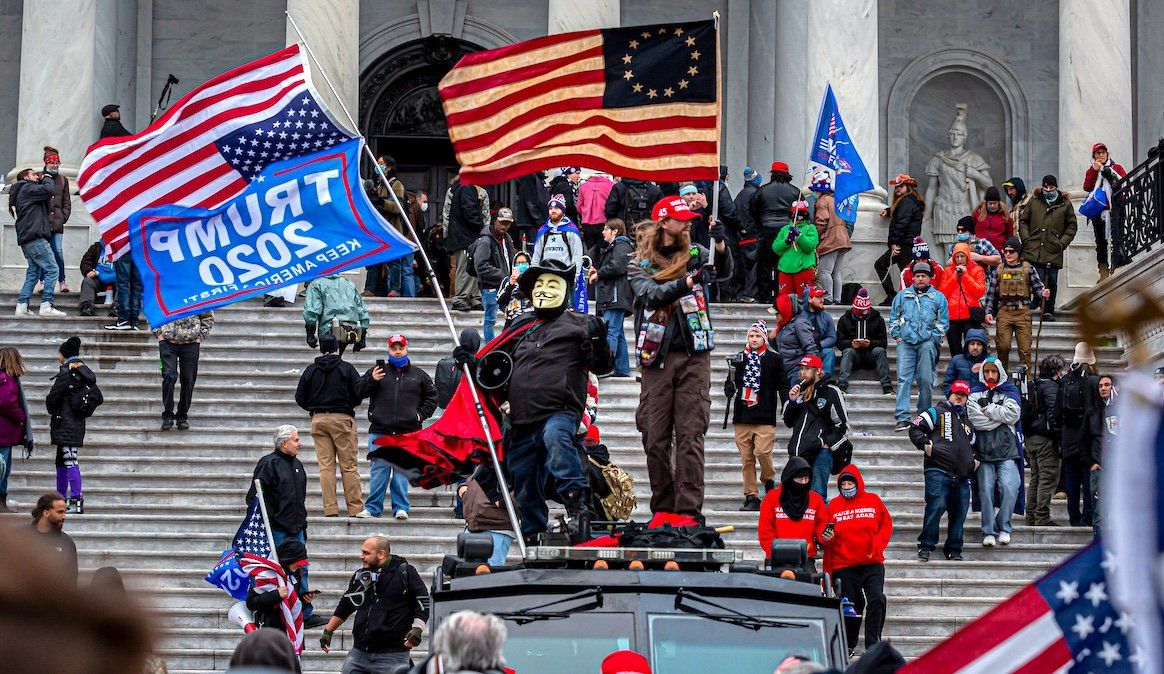As Election Day unfolds across the United States, law enforcement agencies warn that well-organized groups supporting Donald Trump may disrupt Tuesday’s vote and could carry out acts of violence. In particular, one chapter of the Proud Boys, a far-right movement that played a pivotal role in the pro-Trump riot at the US Capitol on Jan. 6, 2021, posted a message on social media that its members “will either stand with the resistance or take a knee and willingly accept the yoke of tyranny and oppression.”
In fact, the New York Times reports that an investigation of more than one million messages posted on Telegram “question the credibility of the presidential election” and threaten to “interfere with the voting process and potentially dispute the outcome.” Some of these messages included images of violence. A so-called “election integrity” movement urges Telegram users to help “audit” the vote and to share news related to election rigging. Governors in Oregon, Washington, and Nevada have National Guard troops on standby in case of election-related violence.
Media coverage of the threat of trouble has Americans on edge. A new study from the American Psychological Association, an industry group, finds that more than 70% of Americans fear that today’s election will trigger violence.
